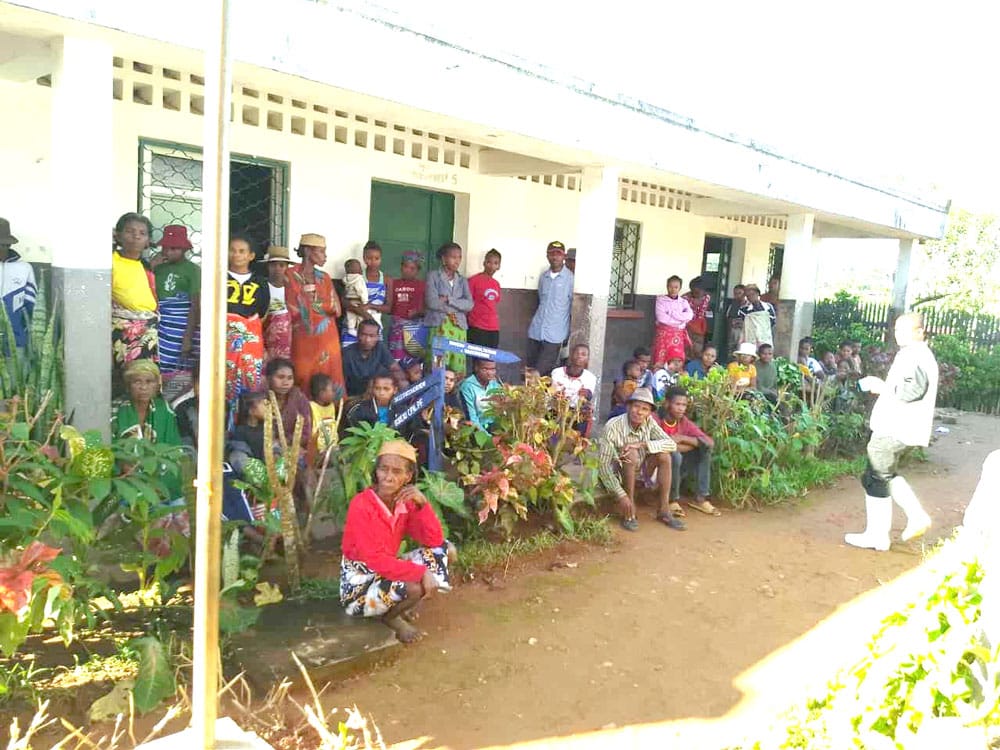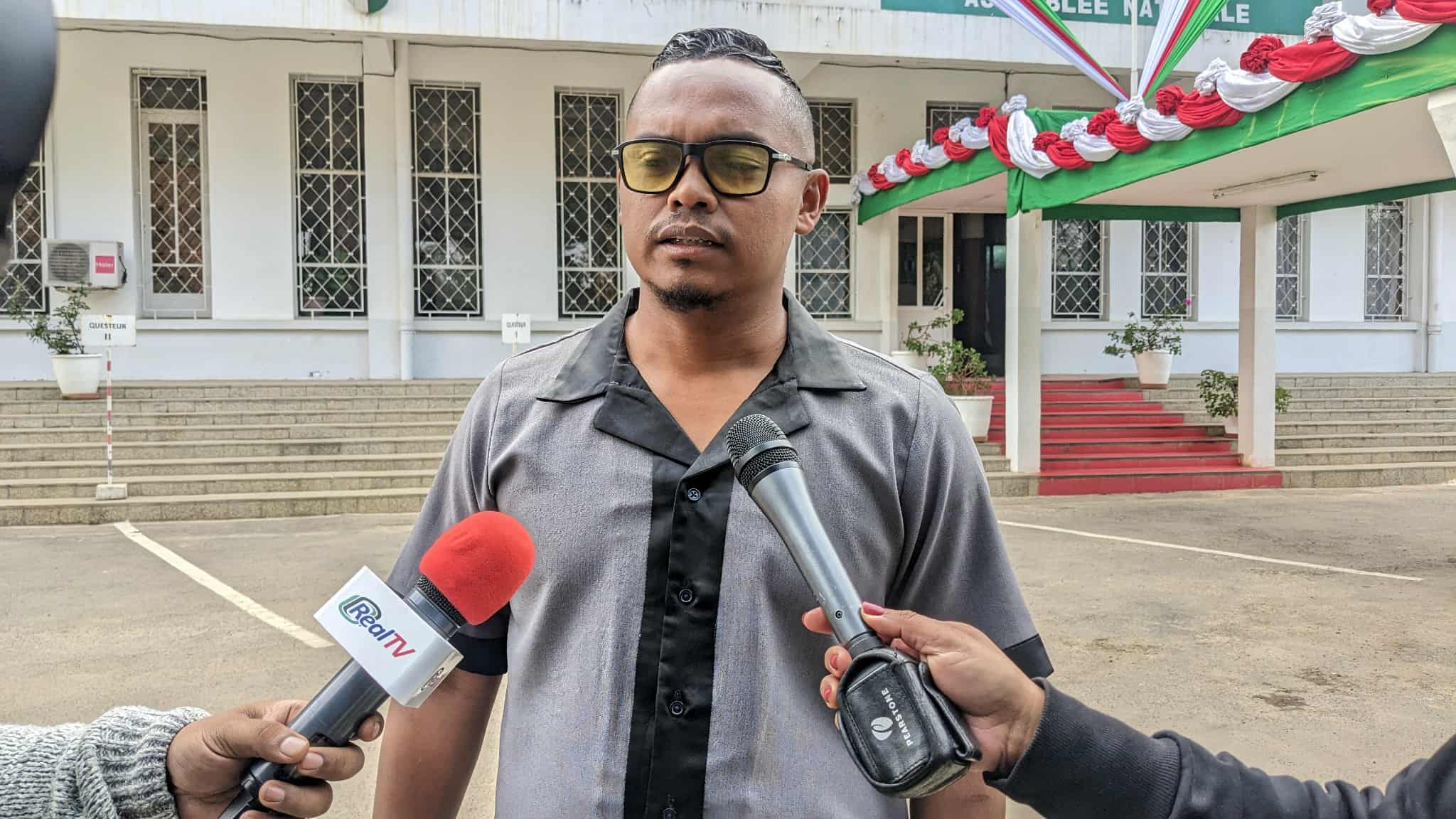Translation Google
ENDEMIC DISEASE - Malaria out of control in Ikongo
Miangaly Ralitera - Published on May 27, 2025
The Ikongo district is facing an alarming resurgence of malaria. This endemic disease is taking on dramatic proportions in this landlocked region.
A worrying resurgence. Authorities in Ikongo are sounding the alarm, particularly in the commune of Ambatofotsy, where the spread of malaria has been accelerating since April. "The situation is out of control," they say unanimously. Cases of infection continue to rise, despite the efforts of health professionals, who travel the fokontany to identify and treat patients.
Jean Bosco Telolahy, head of the fokontany of Mahasoa - the worst-affected village in the commune of Ambatofotsy - reports tragic human losses.
"Today (editor's note: Tuesday, May 27), a 20-year-old woman died. A child died last night, and another yesterday. They all had the same symptoms. Once they die, their skin turns yellow," he said. He estimates that around twenty people with malaria symptoms died in his fokontany during the month of May.
The mayor of the commune, Jean Ravelonjatovo, also underlines the gravity of the situation: "Out of 200 people who took the screening test, only 40 tested negative. What is even more alarming is that some infected people suddenly lose consciousness and collapse, before experiencing episodes of diarrhea," he says.
Traditional practitioners
At a press conference on Monday, Public Health Minister Professor Zely Randriamanantany announced around twenty deaths in Ikongo, without confirming that they were due to malaria. He specified that most were community deaths: the victims had not attended health centers, preferring to turn to traditional practitioners. According to him, this traditional medicine contributes to the rising mortality rate. However, he indicated that medical teams have been on the ground for two weeks to monitor the situation. Since then, no new deaths have been reported. Insecticide-treated mosquito nets have also been distributed.
Local authorities welcome the efforts of the Ministry of Public Health—namely, the distribution of mosquito nets, the supply of medicines and screening tests, and the deployment of mobile health teams—but consider these interventions insufficient. They call for a continued presence of health professionals and a massive distribution of mosquito nets. “Health workers intervened in our fokontany and treated the sick free of charge. But as soon as they travel to other localities, the number of cases starts to rise again. In addition, around 100 mosquito nets were distributed, which is insufficient. Some homes have as many as three or four beds,” insists Jean Bosco Telolahy.
Miangaly Ralitera
-----------------------------------------------
May 31, 2025
Ikongo District: Twenty deaths from malaria
The Ministry of Public Health has confirmed that the cases of a mysterious illness reported in recent months in Ikongo district were caused by malaria. This announcement follows epidemiological investigations conducted on the ground after the reports of around 20 deaths.
The Ikongo district, located in southeastern Madagascar, has faced a resurgence of malaria cases, particularly in the rural commune of Ambatofotsy since February. Around twenty deaths have been recorded there. This situation led the Ministry of Public Health to launch a thorough epidemiological investigation. The results confirmed the active presence of malaria in the Ikongo district, particularly in this commune of Ambatofotsy. The Regional Director of Public Health (DRS) Fitovinany, Dr. Jacques Randriamiadana, pointed out that some victims were unable to reach a health center before their deaths.
Local care
Concrete actions have been implemented in response to this health emergency. Community awareness campaigns have been organized in the fokontany of the Ikongo and Vohipeno districts, involving local leaders to inform the population about malaria symptoms and preventive measures. A "community care" strategy has been deployed, particularly in the fokontany of Mahasoa, allowing medical teams to go directly to villages to diagnose and treat patients. Free treatments are being administered, and medical supplies, including rapid diagnostic tests (RDTs), have been distributed to local health centers. It is important to note that malaria is endemic in the Ikongo district, with active transmission throughout the year.
Narindra Rakotobe
ENDEMIC DISEASE - Malaria out of control in Ikongo
Miangaly Ralitera - Published on May 27, 2025
The Ikongo district is facing an alarming resurgence of malaria. This endemic disease is taking on dramatic proportions in this landlocked region.
A worrying resurgence. Authorities in Ikongo are sounding the alarm, particularly in the commune of Ambatofotsy, where the spread of malaria has been accelerating since April. "The situation is out of control," they say unanimously. Cases of infection continue to rise, despite the efforts of health professionals, who travel the fokontany to identify and treat patients.
Jean Bosco Telolahy, head of the fokontany of Mahasoa - the worst-affected village in the commune of Ambatofotsy - reports tragic human losses.
"Today (editor's note: Tuesday, May 27), a 20-year-old woman died. A child died last night, and another yesterday. They all had the same symptoms. Once they die, their skin turns yellow," he said. He estimates that around twenty people with malaria symptoms died in his fokontany during the month of May.
The mayor of the commune, Jean Ravelonjatovo, also underlines the gravity of the situation: "Out of 200 people who took the screening test, only 40 tested negative. What is even more alarming is that some infected people suddenly lose consciousness and collapse, before experiencing episodes of diarrhea," he says.
Traditional practitioners
At a press conference on Monday, Public Health Minister Professor Zely Randriamanantany announced around twenty deaths in Ikongo, without confirming that they were due to malaria. He specified that most were community deaths: the victims had not attended health centers, preferring to turn to traditional practitioners. According to him, this traditional medicine contributes to the rising mortality rate. However, he indicated that medical teams have been on the ground for two weeks to monitor the situation. Since then, no new deaths have been reported. Insecticide-treated mosquito nets have also been distributed.
Local authorities welcome the efforts of the Ministry of Public Health—namely, the distribution of mosquito nets, the supply of medicines and screening tests, and the deployment of mobile health teams—but consider these interventions insufficient. They call for a continued presence of health professionals and a massive distribution of mosquito nets. “Health workers intervened in our fokontany and treated the sick free of charge. But as soon as they travel to other localities, the number of cases starts to rise again. In addition, around 100 mosquito nets were distributed, which is insufficient. Some homes have as many as three or four beds,” insists Jean Bosco Telolahy.
Miangaly Ralitera
-----------------------------------------------
May 31, 2025
Ikongo District: Twenty deaths from malaria
The Ministry of Public Health has confirmed that the cases of a mysterious illness reported in recent months in Ikongo district were caused by malaria. This announcement follows epidemiological investigations conducted on the ground after the reports of around 20 deaths.
The Ikongo district, located in southeastern Madagascar, has faced a resurgence of malaria cases, particularly in the rural commune of Ambatofotsy since February. Around twenty deaths have been recorded there. This situation led the Ministry of Public Health to launch a thorough epidemiological investigation. The results confirmed the active presence of malaria in the Ikongo district, particularly in this commune of Ambatofotsy. The Regional Director of Public Health (DRS) Fitovinany, Dr. Jacques Randriamiadana, pointed out that some victims were unable to reach a health center before their deaths.
Local care
Concrete actions have been implemented in response to this health emergency. Community awareness campaigns have been organized in the fokontany of the Ikongo and Vohipeno districts, involving local leaders to inform the population about malaria symptoms and preventive measures. A "community care" strategy has been deployed, particularly in the fokontany of Mahasoa, allowing medical teams to go directly to villages to diagnose and treat patients. Free treatments are being administered, and medical supplies, including rapid diagnostic tests (RDTs), have been distributed to local health centers. It is important to note that malaria is endemic in the Ikongo district, with active transmission throughout the year.
Narindra Rakotobe







Comment